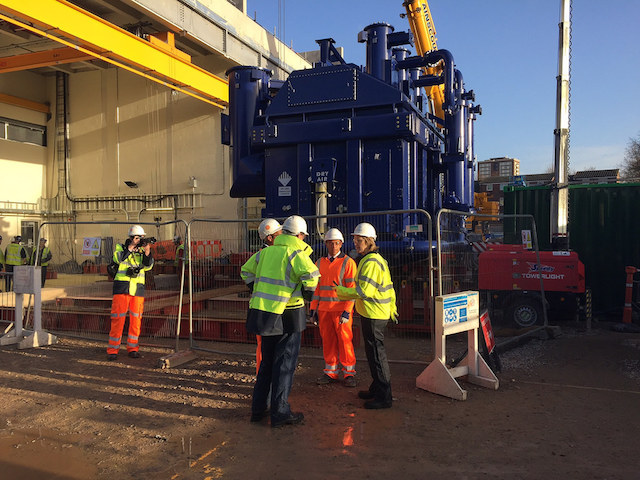As National Grid, formerly the old Brooklyn Union Gas and later KeySpan, seeks a 14% rate hike in New York, the city council and the company’s unionized workers are taking a tough stand on the utility’s current use of outside contractors and lack of inspectors on crucial infrastructure work.
National Grid delivers gas to 1.2 million residents in Brooklyn and Queens. It installs and maintains supply lines and piping leading into homes, apartments, condominiums, schools, hospitals, restaurants, and other commercial and residential buildings, both large and small.
In January, the utility asked the State Public Service Commission to let it raise rates by 14% starting next year, its first price hike since 2008. The increase, which would be phased in over time, would boost National Grid’s revenue in the New York area by about $400 million.
But TWU Local 101, which represents 1,600 men and women employed by National Grid as field representatives and technicians, is pushing back against the proposal, noting that the company has tripled the amount of projects being done by outside contractors while failing to increase the number of inspectors.
As the inspectors can’t get to every site, they are currently directed to make their safety checks over the telephone by asking contractors if they did the work properly.
“The Public Service Commission absolutely needs to take a closer look at National Grid – and tighten safety regulations – before granting any rate increase,” said TWU Local 101 President Mike Conigliaro. “The Commission should direct National Grid to eliminate dangerous ‘inspections by telephone’ and ensure that trained National Grid employees inspect all the work that is done by outside contractors. The safety of the public is too important to cut corners.”
Siding with the union is Manhattan City Councilman Daniel Garodnick, who recently fired off a letter to the PSC noting that National Grid now utilizes 71 outside contractors, but has only 21 inspectors to sign off on their infrastructure work with much of it done through telephonic inspections.
“I am concerned that this system would not provide for inspections that are nearly as rigorous as an in-person inspection,” wrote Garodnick. “National Grid needs to ensure that they are managing their personal and hiring decisions in an effective and efficient way, and most important, that their operations pose no risk to public safety.I urge the Commission to direct National Grid to address these serious safety and management issues before considering a rate increase.”
Additionally the City Council recently saw several bills introduced relating to gas safety stemming from recent gas explosions at apartment buildings.
Manhattan City Councilman Ydanis Rodriguez introduced one measure, (1098), which would require that gas utilities provide annual reports on the location, age, condition, and material of the various parts of the gas infrastructure in the city. The bill would also require that such utilities report on work done and planned work on such infrastructure.
A National Grid Spokesperson responded that the company provided testimony during the City Council hearing on the bills, and supports local legislation that further enhances gas pipeline safety and the safety of the communities they serve.
“National Grid’s number one priority is safety. We take the safety of the public, our communities and our employees very seriously. The company has implemented comprehensive pipeline integrity management policies and procedures that meet or exceed federal and state regulations. Our trained and experienced crews and contractors perform gas main work every day safely and without incident,” said the spokesperson.
When asked directly about the use of telephonic inspections the spokesperson replied:
“Inspection of work performed by National Grid crews and contractors is consistent with oversight guidelines established by the American Gas Association. All National Grid crews and contractors are operator qualified through the Northeast Gas Association Operator Qualification Program, the workers are trained, tested and certified to perform gas work.”
Meanwhile the Cuomo Administration might go along with the rate increase as the Metropolitan Transit Authority is already looking to get $375 million from the utilities to defray the cost of moving wires and pipelines during transit construction and renovation projects, Crain’s reports.
A PSC spokesperson said before the commission makes any decision on the rate hikes there is a lengthy process that allows for all the stakeholders to weigh in. This process includes public hearings and there will be one in Brooklyn, the spokesperson said.
“The Commission takes its gas safety regulations very seriously and we have among the most stringent rules in the nation,” said the spokesperson.
The PSC is expected to make a decision before the end of the year.
Residents and stakeholders are also encouraged to submit comments on the proposed rate hikes here:
http://documents.dps.ny.gov/public/Comments/PublicComments.aspx?MatterCaseNo=16-g-0059










